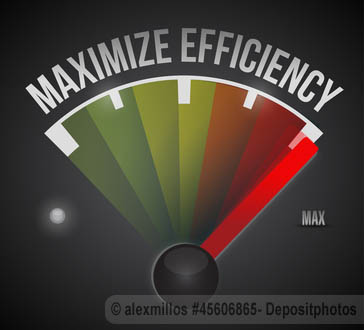importance of communication
Reader Interactions
Importance of Communication Between Employers and Virtual Assistants
 Importance of communication is part-10 of the second interview from Stefan from Germany, who lives the Four Hour Work Week lifestyle in Thailand.
Importance of communication is part-10 of the second interview from Stefan from Germany, who lives the Four Hour Work Week lifestyle in Thailand.
Click here to read part 9– A comparison between verbal and written communication
Summary:
- Nothing is more important than communication. More specifically, how often you communicate with your virtual assistants.
- A virtual assistant should report to you about his work of that day daily – even if he does’t work on any particular day.
- Make it clear at the start of the cooperation, even in the job description and in the interview process that daily communication is a must.
Start of the Interview:

Francis:
One important detail about daily communication, it has happened to me in the past that I was expecting daily communication and, perhaps, asked it. I propose that you definitely ask for daily communication in the interview process already.
When the assistant does not do daily communication, make it clear that he is not annoying you. Even if he has to communicate, “Okay, today I was confused. I couldn’t do anything. Sorry.” Tell them that they can write exactly that.

Stefan:
Yes.

Francis:
Tell them the bad example, sort of, the worst case scenario. Tell them okay in some cases, you have the birthday with your brother and have family party.
Therefore, you cannot do anything. Then please at the evening write me “I had birthday party with my family, I couldn’t do anything. Sorry.”

Stefan:
Okay, just a quick idea here. Because whenever I did that, as you suggested, it was basically the invitation to be lazy. I have the feeling and because of the situation that whenever I showed the person who was working for me that it’s okay when something comes up just tell me. It’s okay. Just tell me. I have to know stuff.

Francis:
They always took the easy way out when you gave them the easy way out.

Stefan:
Exactly. The problem was whenever I showed it’s like showing weakness, in my opinion.

Francis:
Yeah.

Stefan:
At least that’s my experience. Whenever I showed it’s okay when something comes up, just tell me, we can work that out. The only thing that matters to me is a good relationship, a good work flow. And one day lost, it’s not a broken bone. No problem.
We make it up the next day or the next two days or whatever. But once they see that it’s easy to work with me and it’s an easy-peasy thing, I have the impression that they assume they can pull this off whenever they want to go out instead of working.

Francis:
Okay. In principle, many freelances have very motivated work ethics because they wouldn’t be freelancing if they didn’t need the money and the work. So I assume a base level of motivation to work.
Assuming that the first trust building steps have been done and they are the right person for the job and daily communication is established. It is a difference between being a human employer so being a nice person, a nice boss than being a lenient employer meaning being a boss that you can do everything with.
So there’s a clear difference between that. I think that I’m a rather nice person, if I may say that. I believe that you might be a more strict person, if that’s okay to say.

Stefan:
Actually, I think I’d rather go into the opposite direction. I’m a true easy boss.

Francis:
Okay.

Stefan:
Because I tell my employees that the only thing I’m interested in is that the job is done and if they take 1 day, no problem; if they take 2 days, no problem. It takes as long as it takes.

Francis:
That’s perhaps not the best way to attack this sort of work.

Stefan:
Yeah but then on the other side, I wanted to compensate this behavior with that employees give me feedback at all the time. Like every day or every 2 days.

Francis:
Yes.

Stefan:
But they still lack in that aspect.

Francis:
Yeah. So as I said, make it clear in the job description and in the interview process. Daily communication is work. If they don’t do daily communication, you assume this is not like it was decided in the beginning and then they fail.
So it is just as important daily communication as the actual work. Make this clear that this is no joking matter. You understand jokes; you understand human weaknesses. That is okay. But on daily communication, there is no playground.
If on some evening they fell sick, I mean if they’re sick then just write. They write you one line “I’m sick” and you understand that. That’s okay. If they’re sick all the time then you have a problem. Either you have a very sick virtual assistant and you have to decide if you want to work with him or you have a liar.
So assuming that we don’t have the sickness excuse and you will see that over a long time how often a normal person is sick. If they don’t communicate to you in one evening, tell them “Okay, you might miss out occasionally and, I’m telling really occasionally, to communicate to me at the end of the day.” But if you miss that, communicate to me the next possible point in time so next morning.
Next morning, you write “Okay, sorry last evening I couldn’t write so I’m writing you this morning. This and that…” You expect that if there’s a miscommunication there will be some sort of compensation for that.

Stefan:
Yes.

Francis:
I tried to point them out in our mastermind group which we have which is closed so I won’t link to it. But unfortunately, Google plus deleted somehow my comment when I pressed enter and I didn’t want to write it again.
Communication In Business With VAs
Insider Knowledge from an Interview with Eric

Eric and I had an info-packed Skype call where we discussed the ins and outs of efficient communication in business with your Virtual Assistants.
Eric
- teaches the piano,
- uses the same website and business building system as I
- and works with virtual assistants.
We decided to share this interview with you, so that you can learn from our experience. It is divided in sections by topic. Feel free to scroll down and read about the
Communicate with your Virtual Assistant effectively

If you start outsourcing without knowing how to communicate with your VAs the right way, your efforts may fail! How you communicate with each other will build or break your business.
We share in the first part of this interview our insights about effective virtual assistant communication – as well as…
- pitfalls,
- productive habits
- and trust building steps
Maximize the results of your VAs

The best imaginable Virtual Assistant is one who thinks, works and is motivated like a better clone of yourself. Just one that has more time and procrastinates less.
In the interview, we discuss how to get closer to that perfect administrative virtual assistant – without paying big bucks.
Hint: it’s about
- Finding the right fit for you – and knowing how to find that
- Being as honest with your VA as he should be with you
- The right ongoing training and feedback
Ongoing work revisions to reach your goals

At the beginning, you will not quite be at this perfect state with your VA. He will have to re-work his work to adapt to your expectations.
Not to say your VA will do a bad job. That’s not often the case if you instruct him right. But to find the way “you like it” he will need time to adapt to you.
In order not to get too expensive, it makes sense that you discuss the terms of the training period. For me, it is always paid working time.
However, negotiating work revisions with your virtual assistant makes business sense. And saves you money and/or time.
Learn from your assistant

If you think you are the one with all the knowledge and your assistant is the “trainee” without any experience – you risk missing some of the hidden good stuff that comes with having a VA.
Your VA will surprise you with his experience, if you encourage him to give you his honest feedback. This is a tricky skill to master.
But as we go through this part of the interview, Eric and I discuss the fine details of how to maximize giving feedback back and forth.
Tell your VA what you want with maximum efficiency

When you have a VA, you will soon see that you need to discuss many detailed things with him. Email communication can be tedious and easy to misunderstand.
Years of experience working with Vas have taught me that recording your screen with audio is, by far, the most efficient way to talk to your VA.
It’s
- Independent from time zone differences (better than using Skype),
- Faster than email
- And can be reviewed as often as needed by your VA.
Especially with freshly-hired VA’s, you will see it’s the best for establishing trust and giving you an approachable voice.
Kick-Start with a newly hired VA

Now we talk about getting started with a virtual assistant.
Hiring an affordable VA from Asian cultures (not a professional VA for 50$/hour from the US) comes with its challenges.
- The biggest one at the beginning is breaking the ice and building trust.
- On the other hand, you need to know the strengths and weaknesses of your VA as fast as possible.
Only then you can make the right decisions for your business going forward.
Increase Productivity of your VA with the right communication channels

Optimizing your virtual assistant communication channel can improve the output you receive from your VA.
On the other hand, screening your assistant too closely, or giving him the impression that you scrutinize his every move can put too much pressure on your assistant.
Each VA is different.
- Some, if not most of the VAs will greatly appreciate the advantages of modern software supported global communication in business matters.
- Some will need more encouraging and positive feedback to make sure they don’t feel too much pressure.
Listen to what your VA is telling you – it will help your business

In this next interview part, Eric and I discuss the importance of being open to the concerns of your VAs.
Sometimes, the expectations of your VA and you, the employer, will be different. It’s important to have an open ear for suggestions and feedback. This will also make it easier to improve
- the communication with
- and the results of
your VAs.
Sending big files to your Virtual Assistant

Don’t clog up your email outbox and your VA’s inbox. There are more efficient tools to share and update big files with your VA.
Time is money. Don’t waste your money on waiting for the file transfer of bigger files.
This is especially useful as sometimes VAs from eastern Asian countries don’t have the fastest internet connections (due to weather etc.).
The video recordings from your instructions are good examples of such big files. They make talking with your VA easier.
Start with easy tasks for your new VA

It’s easy to overwhelm a new virtual employee with tasks that are
- too many
- too complicated.
In the next part of this interview, Eric and I discuss how to set up initial tasks efficiently, without confusing your VA.
And we stress the importance of positive feedback loops with your new VA.
Firing someone is hard – but necessary if the assistant is not the right fit for you

Next, we talk about an aspect of outsourcing that is no fun, but sometimes necessary. And it gets talked about much too little. It’s about firing a VA in a human and professional way – if the VA doesn’t fit your business.
Especially when you start out with outsourcing, it’s very easy to get emotionally attached to “your” VA too early.
Hiring and firing is closely connected, when it’s about screening for the right assistant to keep long-time.
Full-time VA or hourly based VA – what’s the better choice?

Now that you followed the interview far enough to imagine having found the perfect assistant – what’s missing?
A decision: is your assistant a
- full time, 40hrs a week working VA?
- project based, hourly paid VA?
There’s much difference between both of them, both in regards to long term gains and involvement levels.
The discussion discusses the ins and outs of part-time vs. full-time virtual assistants – but the one lesson you must keep in mind is:
Both types of VAs have their place, advantage and uses for your business. There’s no one-stop solution for every situation.
Getting serious: starting steps with a full-time VA choice?

Eric works more with project based VAs, and I have started to work with a full-time VA from the Philippines. In case you choose to go with a full-time virtual assistant, there are lessons to be learned in our interview to avoid wasting time and money during the
- screening for
- training of
- communicating with
your full-time VA.
Scaling up: best practices for handling a team of virtual assistant

Handling more than one VA is more of a challenge than you think. Follow Eric’s and my advice of how to best take control and reap the full rewards of a team of virtual assistants.
My best advice:
“Start out with one assistant who knows you well, and let him support you with training any new assistant coming into your team!”
If you are working with a flexible team of VAs, and need one place to manage them and your projects well, there is one tool I recommend from experience. It can be used with the lean management philosophy, and is at the same time very intuitive. And last but not least, it’s a free tool.
Check out our review of using Trello to manage a team of VAs.
Leave advanced work to short term hired specialists

What do you do when you have a challenging job to outsource that needs specialists?
It’s sometimes much too expensive to train a full-time general VA to do a specialist’s job.
Sometimes, just hiring someone who has mastered a skill set (e.g. creating a video professionally) for an increased hourly rate. Or for a project-based fixed price.
(Please also see a discussion about fixed price vs. hourly rate on my preferred outsourcing platform)
Did you follow up to here?
Congratulations!
Your thirst for knowledge will reward you with great results!

In the final parts of this interview, we digress a bit on a tangent. But for the sake of completeness, I kept the transcripts anyways. If you have the same questions, this might be of some use.
First, we brainstorm a bit about using YouTube videos to promote our businesses, and how this can be supported with the help of our Virtual Assistants. Also, YouTube can be a great resource to train your assistants new skills!
Just think about the huge number of great instructional videos on this platform alone.
Later, we discuss how to best analyze traffic stats and Google Analytics from YouTube related traffic.
Mastering making the best of your existing traffic is your job, not your VA’s!

Leave a Reply